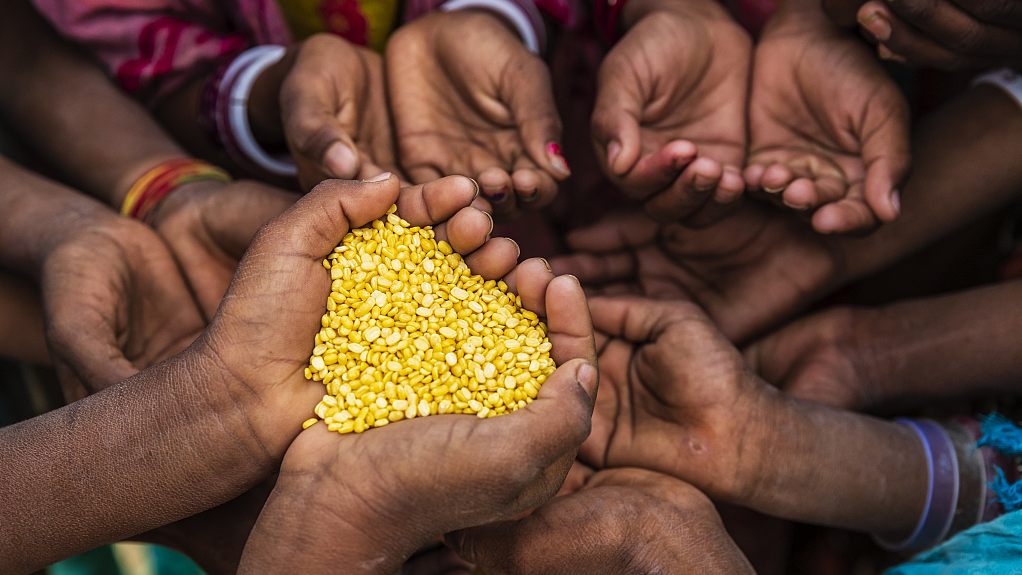Eastern African parliamentarians on Thursday agreed to champion the cause for swift and determined climate action from governments and relevant organizations to avert food crises and malnutrition in the sub-region.
"The Eastern Africa sub-region is particularly vulnerable, experiencing cascading effects on food security, nutrition, poverty, and livelihoods. Climate change leads to a breakdown of food systems, resulting in loss of rural livelihoods, income, and ecosystems," said the Eastern Africa Parliamentary Alliance for Food Security and Nutrition in a joint statement issued in Nairobi, the capital of Kenya, after attending the fifth general assembly meeting organized by the United Nations Food and Agriculture Organization (FAO).
The meeting discussed current legal and policy issues and gaps related to climate action and food systems transformation in the sub-region, as well as opportunities and priority actions, including policy options and financing mechanisms, to advance this crucial agenda in Eastern Africa.

Some 22 million children under the age of 5 years are stunted in eastern Africa, according to FAO. /CFP
Some 22 million children under the age of 5 years are stunted in eastern Africa, according to FAO. /CFP
Adan Haji Yusuf, the chairperson of the alliance, stressed the essential role of parliamentarians in combating hunger and malnutrition. He highlighted that their legislative, budgetary, and oversight responsibilities uniquely position them to elevate the importance of food and nutrition security to the highest levels of the political and legislative agenda.
Moses Wetangula, speaker of the National Assembly of Kenya, said Africa has struggled with poverty and hunger despite having all the necessary agricultural resources and policy instruments. Wetangula questioned why Africa, with its vast arable land, dynamic youth, favorable weather, and abundant water, has not been able to achieve food self-sufficiency and social transformation over an extended period.
"I urge fellow parliamentarians to shift their attention towards fulfilling the crucial investment requirements for agriculture, as outlined in the Comprehensive Africa Agriculture Development Program, which stipulates that countries allocate ten percent of their national budget to agriculture," he said.
According to recent FAO data for 2023, 135 million people in eastern Africa are undernourished, almost half of the 282 million undernourished people in sub-Saharan Africa. Some 22 million children under 5 years old are stunted, and 362 million people, representing 85 percent of the region's population, cannot afford a healthy diet, FAO said.
David Phiri, special adviser to FAO assistant director-general and outgoing sub-regional coordinator for Eastern Africa, underlined the pressing concerns of both climate change and food insecurity and malnutrition in the Eastern African region. Phiri said that even though the sub-region hosts less than 25 percent of the African population, it accounts for almost 50 percent of the undernourished people in sub-Saharan Africa.
He emphasized that the bidirectional relationship between climate change and agriculture creates an unprecedented challenge for the farming population, noting that extreme weather events, which mainly occur due to climate change, are becoming among the major triggers of such a predicament.
The Eastern Africa Parliamentary Alliance for Food Security and Nutrition, established in April 2019 in Arusha, Tanzania, comprises members of Parliament from Burundi, Djibouti, Eritrea, Ethiopia, Kenya, Rwanda, Somalia, South Sudan, Sudan, Tanzania, and Uganda.
Source(s): Xinhua News Agency